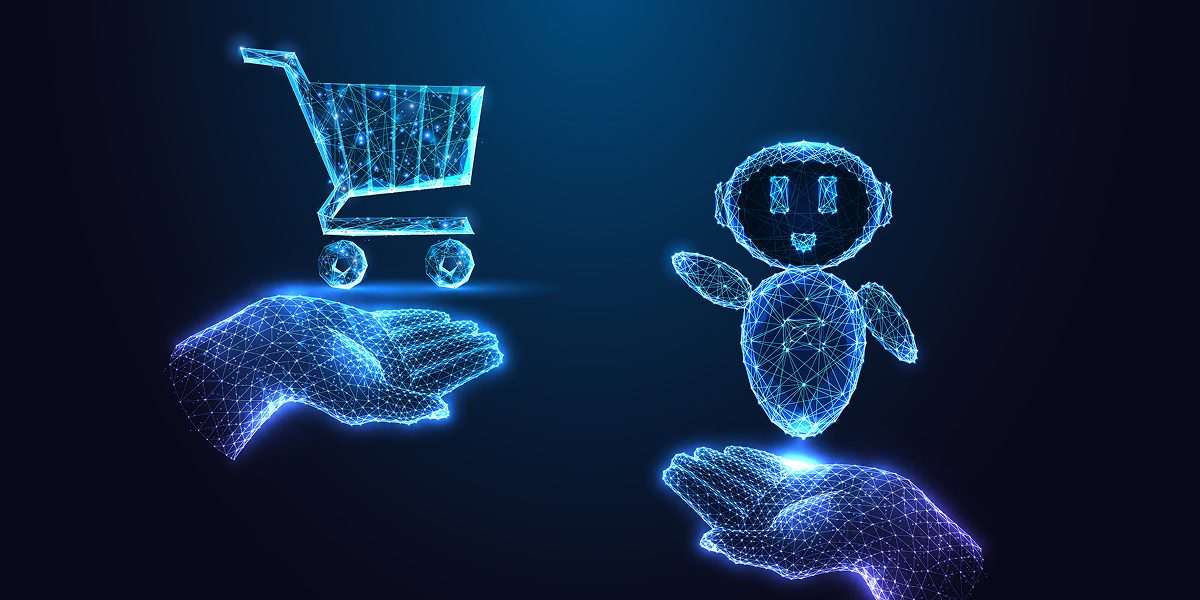Beyond personalization: How AI in CPG is driving hyper-relevant consumer experiences

Highlights:
Highlights
- AI enables CPG companies to deliver highly personalized and timely consumer experiences.
- Hyper-relevance uses real-time data to tailor interactions based on individual behavior and context.
- AI speeds up product development by identifying emerging trends and subtle consumer preferences.
- Marketing powered by AI adjusts content and offers dynamically to match each customer’s interests.
- AI-driven tools improve customer support by providing fast, personalized responses and proactive service.
According to a 2023 survey, 56 percent of consumers were induced to buy again from a retailer that offers online personalization. Moreover, In the U.S., almost half of consumers anticipate personal service when shopping online, a higher percentage than in 16 other nations surveyed. Given the demand for personalization, it is no surprise that AI in CPG is being increasingly leveraged to deliver hyper-relevant consumer experiences.
Hyper-relevant experiences are interactions that are so timely, context-specific, and bespoke that customers feel genuinely understood.
In this article, we explore how CPG brands are creating these hyper-relevant experiences, the role artificial intelligence plays in this evolution, and real examples of success.
From personalization to hyper-relevance in CPG
The concept of “hyper-relevant” experience takes personalization to a deeper level. While traditional personalization might segment customers into broad groups, hyper-relevance means using granular data (purchase history, real-time location, context, even mood) to tailor each interaction almost uniquely.
In the CPG world – where products like beverages, snacks, or cosmetics serve millions of customers – achieving this level of relevance is a tall order. This is where AI in CPG comes to the forefront. Advanced AI algorithms can sift through massive, fragmented datasets (sales figures, social media chatter, loyalty program activity, etc.) to uncover insights about individual consumer behaviors and preferences that were previously impossible to see.
For instance, AI-driven analytics might reveal that a particular customer tends to buy certain granola bars right before hiking trips. A CPG snack brand can use that insight to send a targeted offer or useful content (like trail mix recipes) at exactly the right moment.
In short, AI in CPG is enabling brands to treat consumers as markets of one, moving beyond generic personalization to true one-to-one engagement.
AI-powered consumer insights
Delivering hyper-relevant experiences isn’t only about marketing. It begins upstream with the products and services a company offers. AI is helping CPG companies analyze consumer data to design products and solutions that align with subtle consumer preferences and emerging trends.
By mining social media, search trends, and purchase patterns, AI can pinpoint what consumers are craving (even if consumers can’t always articulate it). These insights inform everything from new flavor development to tailored product recommendations.
Mondelez: Accelerating snack innovation with AI
Mondelez International, the parent company for Oreo and Chips Ahoy uses AI to speed up developing new snack flavors. Their tool, created along with Fourkind (now included in Thoughtworks), enables food scientists to detail desired traits including taste, aroma, and looks.
The machine also takes into account ingredient affordability, environmental influence, and nutrients. This methodology has given rise to products such as the Gluten Free Golden Oreo and has cut the time from concept to production by four to five times over conventional processes.
Coca-Cola’s freestyle machine data
A notable example comes from the beverage industry: Coca-Cola used AI-driven analysis of its Freestyle machine data (the self-service soda fountains) to discover a popular combination – many customers were mixing cherry flavor with Sprite. They responded by launching Cherry Sprite as a standalone product.
In essence, the company’s AI sifted through millions of drink choices to uncover a winning flavor the company might have otherwise overlooked. Other CPG giants are similarly tapping into AI for innovation.
Besides the above examples, consumer goods firms like Unilever and Nestlé have built dedicated “digital command centers” where AI systems parse consumer comments, reviews, and usage data to spot unmet needs or regional preferences.
A Netscribes success story
One of the biggest office supply chain stores was growing at a frenetic pace in Indonesia but didn’t have any method to follow online discussions. The most vital customer complaints, brand mentions, and social media trends were going unmonitored.
The retailer hired Netscribes to create an up-to-date social media monitoring and reporting mechanism. Netscribes segmented out discussions by category, urgency level, and business importance using AI-based sentiment analysis.
Monthly updates and real-time deep-dive alerting assisted the brand to rapidly respond to customers’ grievances. With improved awareness, the marketing decisions were wiser, the engagement was enhanced, and looming crises were addressed early.
You can read the full case study here.
By leveraging AI in CPG for consumer insights, brands ensure that what they bring to market resonates more deeply with consumers. This not only increases the chances of new product success but also makes customers feel heard and valued, as their subtle desires translate into real offerings on store shelves.
Hyper-personalized marketing and consumer engagement
Nowhere is the shift beyond basic personalization more visible than in marketing and customer engagement. CPG brands are deploying AI to tailor content, offers, and interactions in real time across digital channels.
Unlike a traditional campaign (where all customers see the same message), an AI-driven approach can deliver a dynamic experience for each consumer. For example, an AI system might analyze a user’s browsing behavior on a brand’s website and instantly customize the homepage banner to feature the product category most relevant to that user.
If the consumer has a history of buying organic ingredients, the next email promotion they receive could highlight a new organic product line, complete with recipe ideas that match their dietary preferences. AI makes this level of micro-targeting scalable by automating the analysis and decision-making required.
In practical terms, AI-driven tools can monitor how a consumer responds to a brand’s content (Did they click? Watch a video? Leave a review?) and adjust the next interaction accordingly.
Key capabilities enabled by AI in CPG marketing include:
- Real-time adaptability: Machine learning models adjust messaging on the fly based on immediate customer feedback, ensuring each touchpoint stays relevant.
- Predictive recommendations: By comparing each user’s behavior with millions of others, AI predicts what products a person is likely to want next, allowing for suggestions or cross-sells that feel intuitive rather than intrusive.
- Language and sentiment tuning: AI analyzes how consumers talk about products (in reviews or on social media) and helps brands speak the same language, using terms and tones that resonate.
L’Oréal: Hyper-personalized virtual beauty try-Ons with ModiFace
L’Oréal’s ModiFace employs AI-based facial, hair, and nail monitoring to provide real-time, hyper-personalized beauty advice. Through selfies scanned directly on devices, it recommends personalized makeup colors, skin care, and hair colors according to individual characteristics, reaching 88%+ accuracy in examining skin condition and facial feature analysis, inducing greater engagement throughout branded apps, websites, and digital marketing campaigns.
Diageo: personalized bottle through Generative AI
In 2024, Diageo introduced a generative AI experience enabling consumers to design their own Johnnie Walker bottle. The AI takes easy customer inputs and creates one-of-a-kind, bespoke label artwork. This hyper-personalized marketing strategy increases emotional connection, heightens gifting experience, and deepens brand loyalty for Diageo’s premium portfolio.
Beyond product availability, AI also enhances customer service in the CPG realm. Chatbots and virtual assistants, powered by natural language processing, are increasingly handling consumer inquiries for CPG brands on websites and social media. These AI assistants can provide instant, relevant responses – from helping a customer find a specific product flavor in a nearby store to giving tailored usage advice (e.g. a recipe suggestion involving a sauce they bought).
If an issue arises, the AI can triage and personalize the solution (for example, quickly authorizing a coupon or replacement if a customer received a defective item, based on their purchase history and loyalty status). All of this contributes to a smoother, more hyper-relevant customer experience, where each person feels the brand is attentive to their needs at every step.
Conclusion
The journey beyond personalization in CPG is ultimately about making every customer feel like the brand experience was crafted just for them. From product development guided by AI-driven consumer insight to marketing that adjusts in the moment, AI in CPG is enabling companies to deliver experiences that are more relevant than ever before.
We discussed how hyper-relevant experiences differ from basic personalization, looked at examples like Coca-Cola’s data-inspired flavor innovation and AI-curated marketing strategies.
In summary, AI is quickly becoming the connective tissue that links consumer data to meaningful action, allowing CPG brands to anticipate needs and engage consumers in ways that earn loyalty and trust.
For businesses in the CPG sector, the message is clear: those who leverage AI to genuinely understand and serve their consumers will outshine the competition in delivering value.
To stay ahead in this AI-driven landscape, CPG companies need the right expertise and tools. Netscribes offers cutting-edge AI business solutions to help brands create hyper-relevant consumer experiences at scale. From integrating disparate data sources to building custom AI models for your unique needs, our team enables you to unlock actionable insights and drive growth.
Contact Netscribes to discover how we can support your AI initiatives and keep your CPG business at the forefront of innovation.






